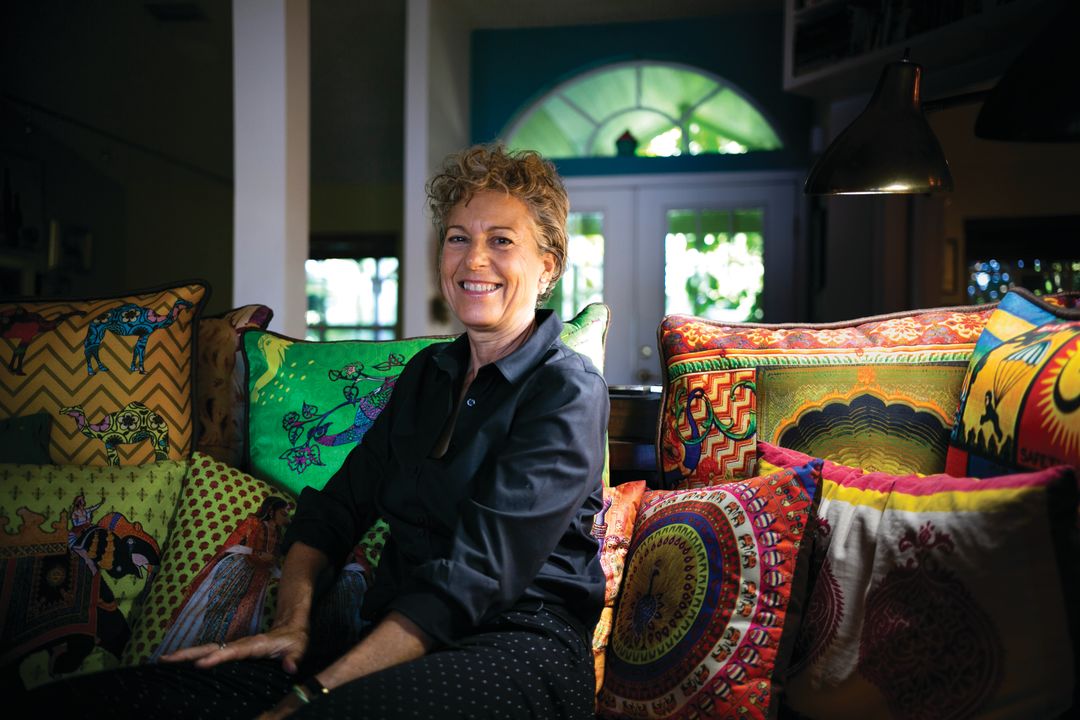E. Scott Osborne Battles for Gender Equality in Sarasota and Across the Globe

E. Scott Osborne
Image: Joe Lipstein
E. Scott Osborne was raised as a feminist, but it wasn’t until she saw the world that she realized how gender disparities are intertwined with poverty and injustice. “Gender inequality is bad for everyone,” she says. “It’s bad for men. It’s bad for women. It’s bad for societies.”
As a young woman, Osborne (who goes by Scott) took a break from law school and joined the Peace Corps, eventually spending two years in the West African nation of Togo. Since then, Osborne, now 62, has lived in seven nations on four different continents, working with schools, international development agencies and nonprofits.
In between bouts of globetrotting, Osborne found Sarasota nearly 20 years ago. One of her missions is to bring the world to us. As the president of the board of the Gulf Coast chapter of UN Women USA, she leads seminars on gender equality and speaks often to young people in the area. She’s also raised the profile of the nonprofit organization’s Through Women’s Eyes film festival, an annual event that screens films by women directors from around the world. The festival, now in its 22nd year, attracts big audiences locally and gives a boost to aspiring women filmmakers.
Osborne says one benefit of traveling abroad is that it helps you see your own country more clearly, and makes you realize that many of the social norms we live by are arbitrary. For people who can’t travel, art can act as a substitute, and that’s the power of Through Women’s Eyes, which, in any given year, might expose you to the struggle against domestic violence in Israel, the role of women in the workplace in India or the plight of Muslim refugees in Germany.
“Countries make up their systems and their rules,” Osborne says. “These are not preordained.” That also means they can be changed. Gender inequality, Osborne argues, is a choice, and it’s something we can fix.



